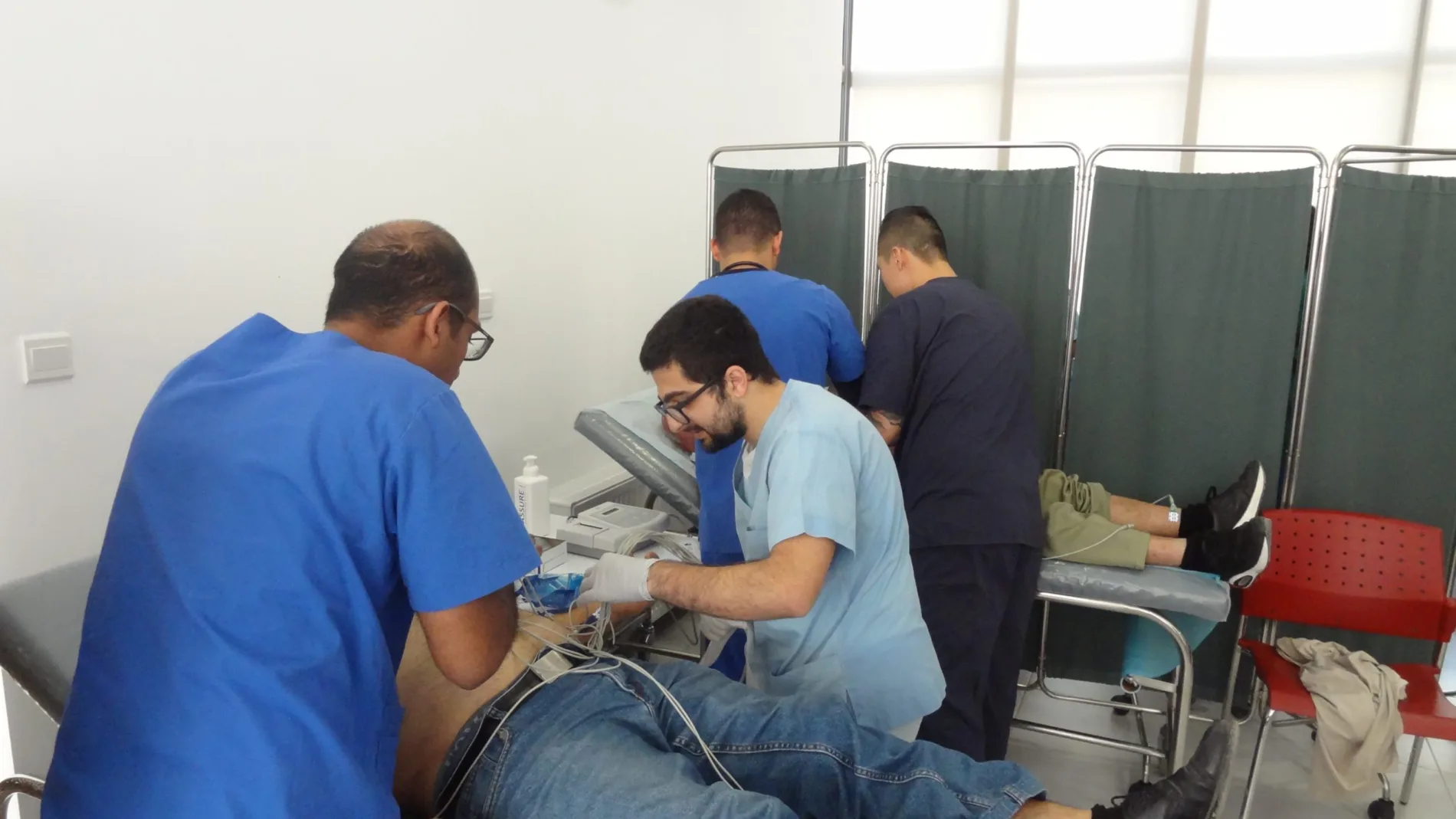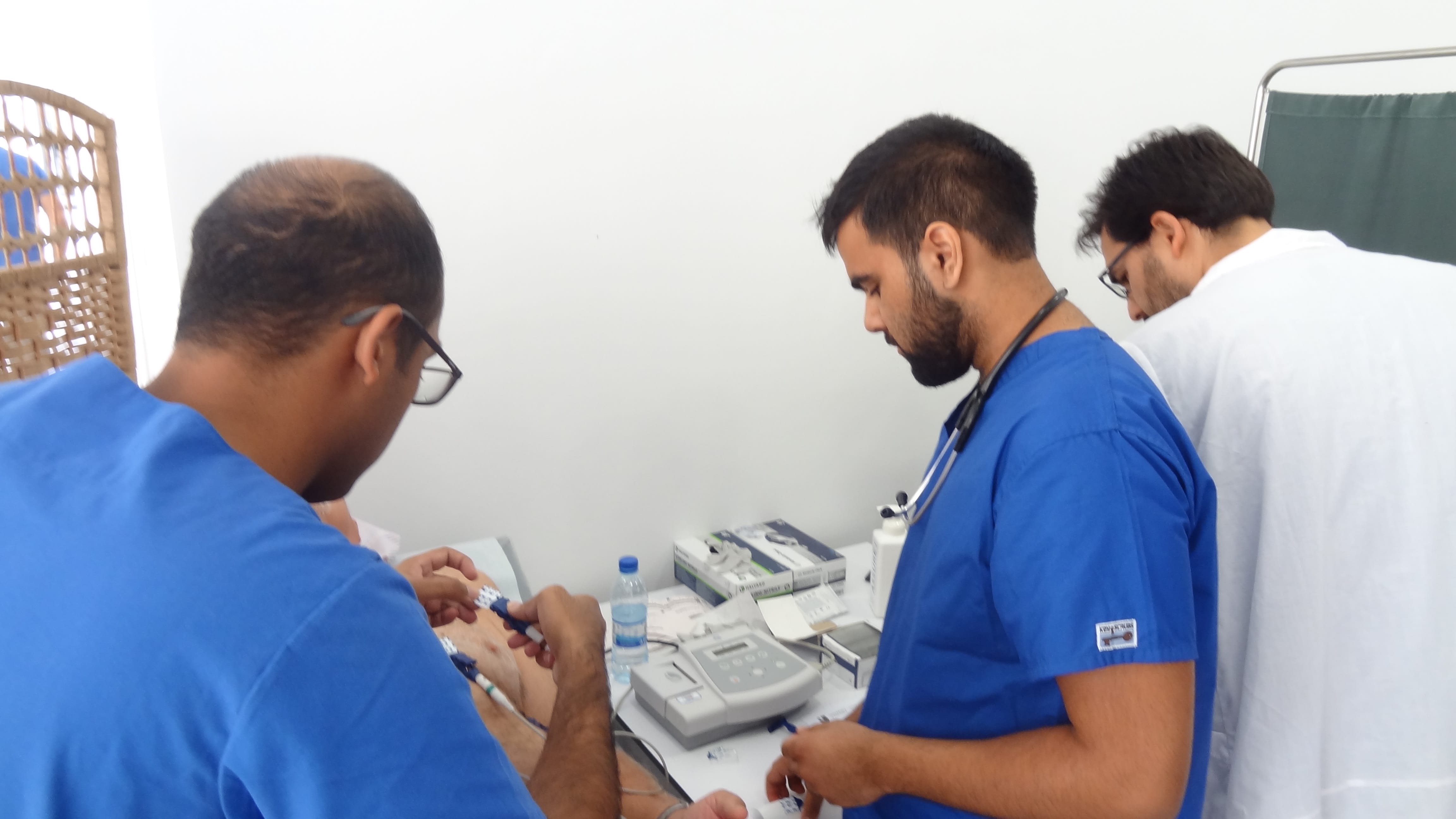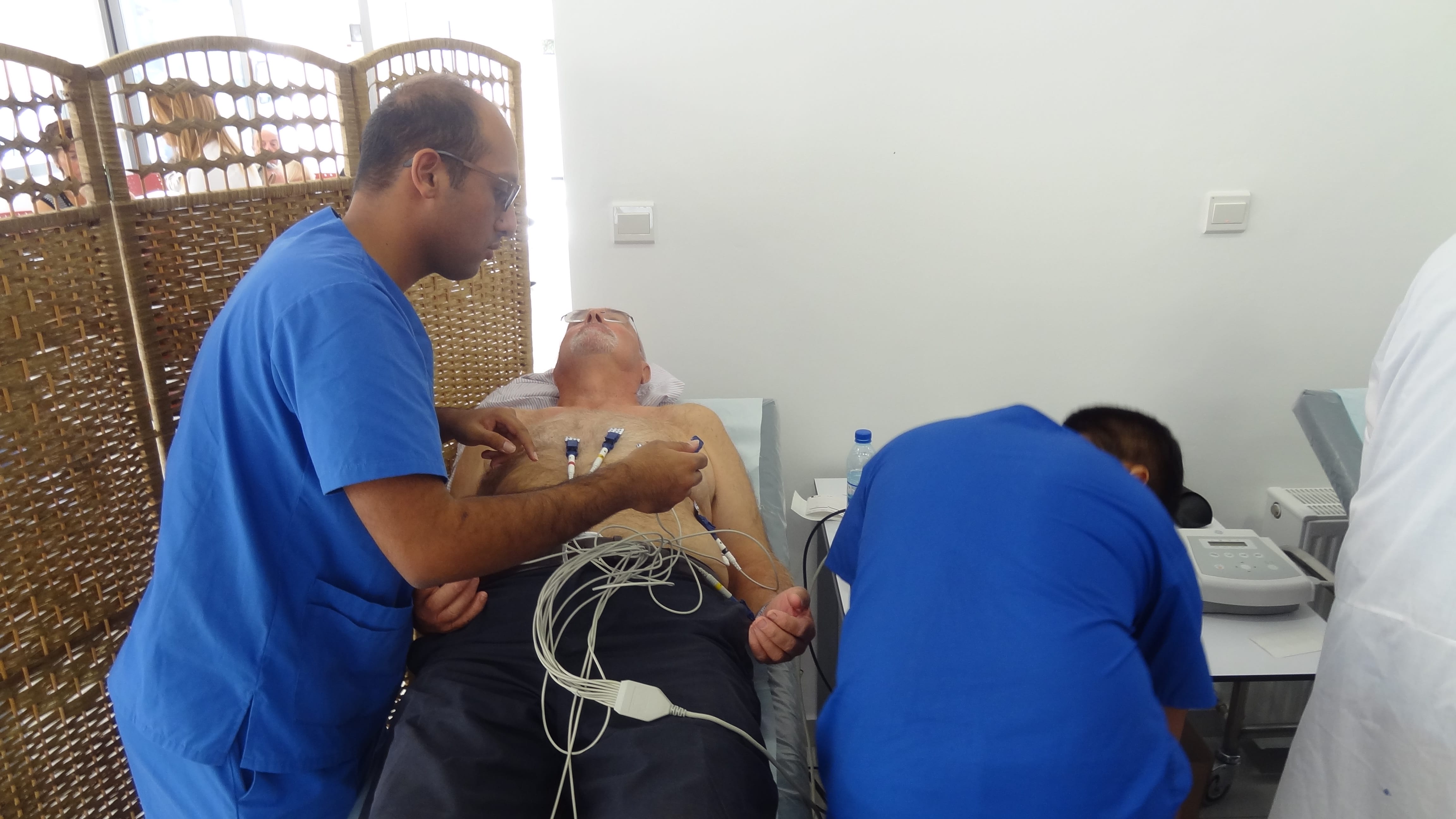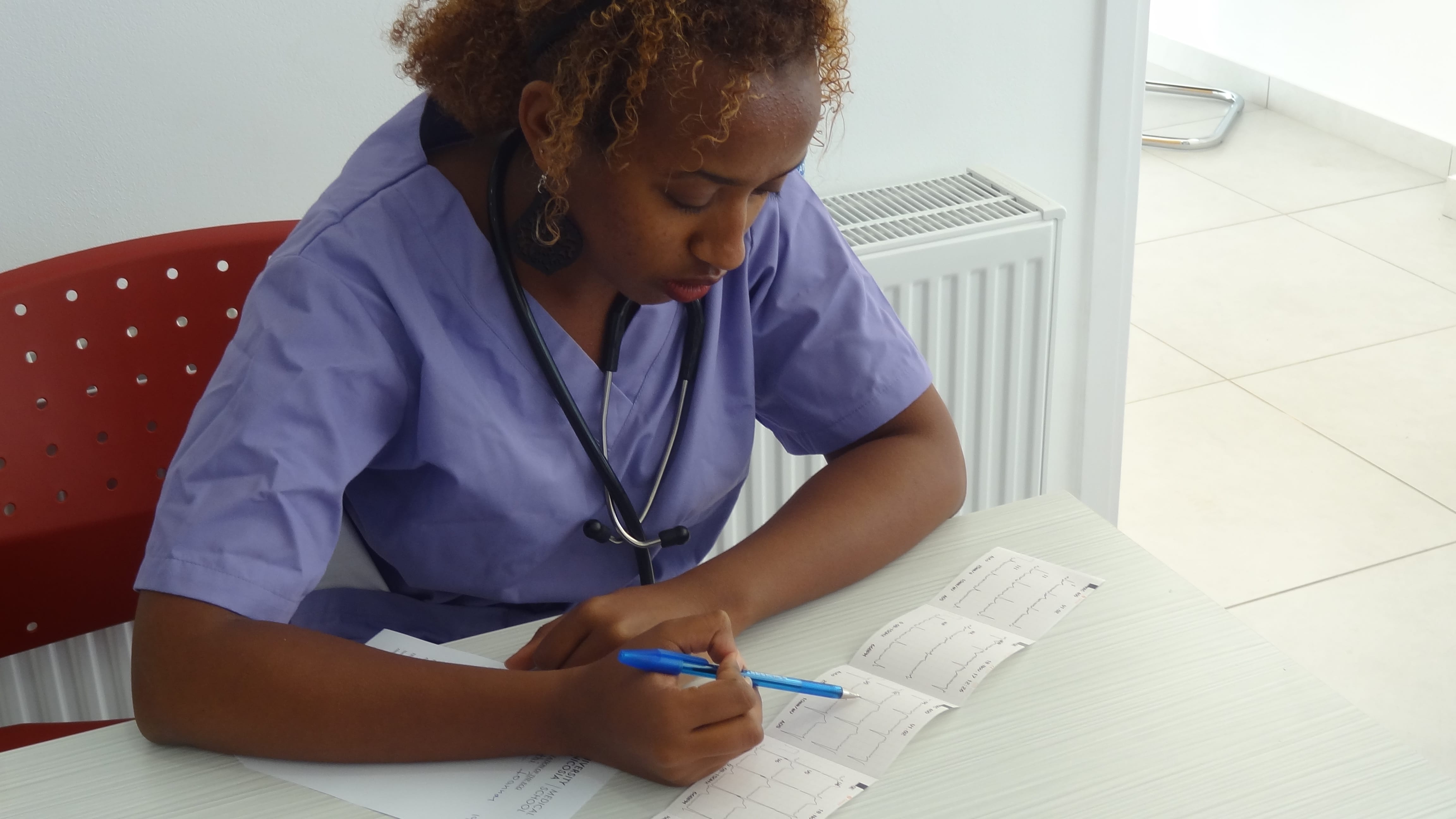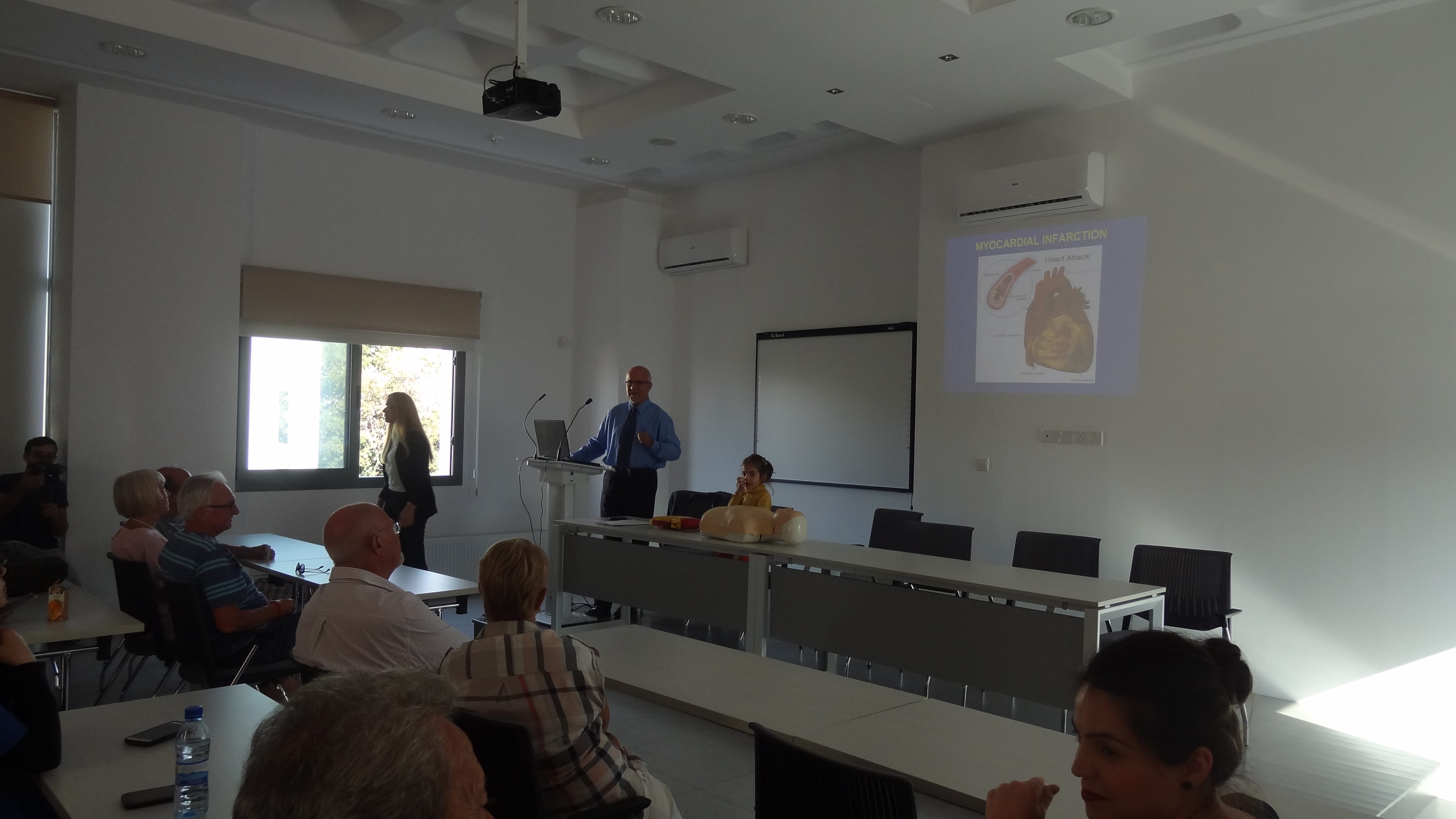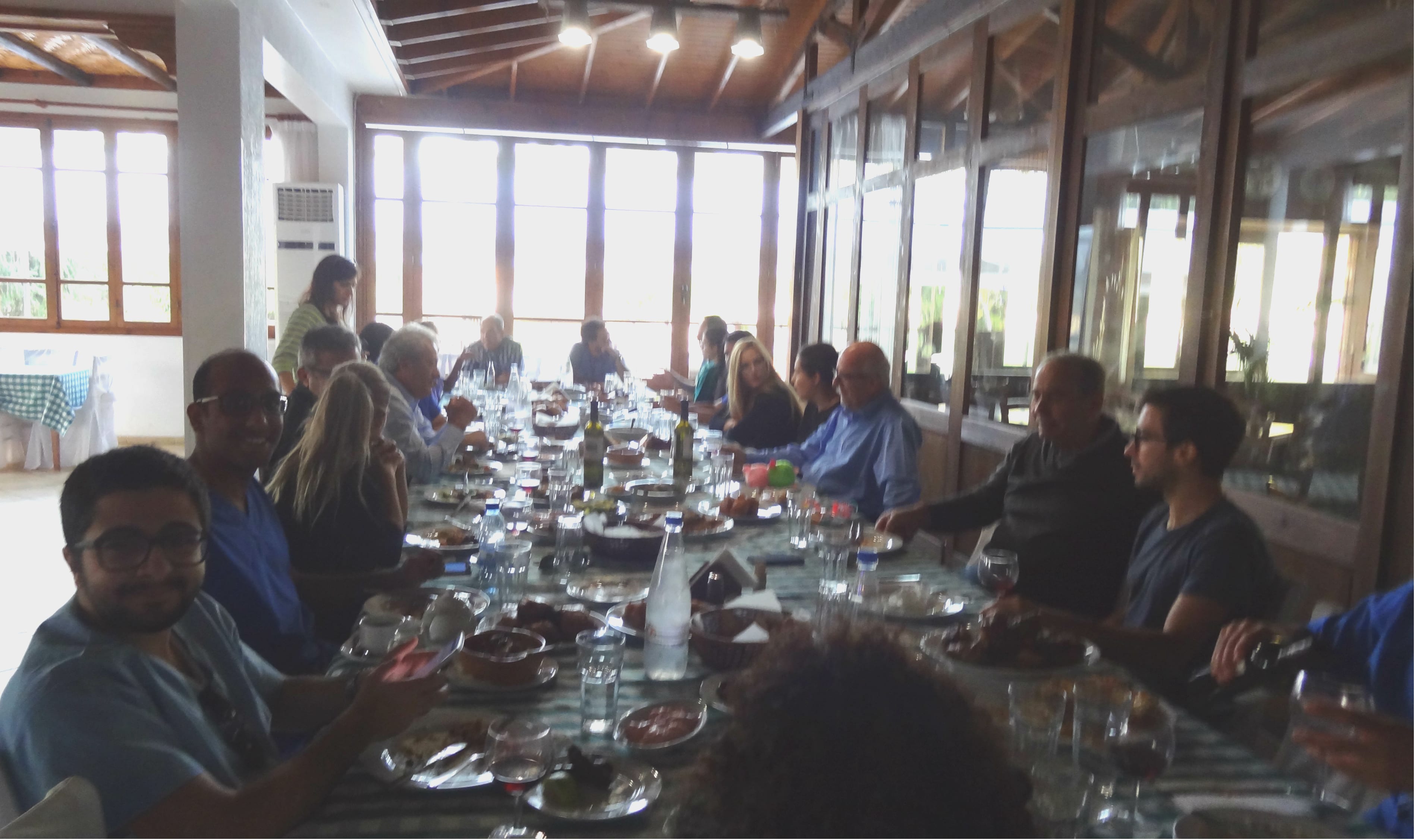
Commenting on the event, Professor Moutiris noted: “This has been a very useful effort and I am very pleased that the students came along to participate. We will continue with other communities with the aim that all of them, in this district and beyond, will have access to a basic medical examination and learn how to better protect themselves”.
November 27, 2017
The picturesque Paphos district village of Anarita was the location of the most recent and highly successful Mobile Clinic expedition. The Saturday 18 November event saw 16 student volunteers, representing both the MD and MBBS programmes, performing electrocardiograms on members of the public under the experienced eye of Clinical Professor of Cardiology, Joseph Moutiris.
Anarita has a large expatriate population and many of its members joined the village’s Cypriot residents at the all-new community centre to undergo an electrocardiogram (ECG). The turnout was even larger than expected and the students enjoyed the opportunity to perform ECGs on a range of people of all ages and levels of fitness in real-life conditions.
The residents were pleased to have the rare opportunity to undergo an ECG in their own community, particularly since many find it difficult to travel elsewhere for medical services of this nature.
Cypriot residents of Anarita, including Aspasia Pissouriou and Marina Michali, commented that they did not want to miss the opportunity of seeing a medical expert when they heard about the visit to their village. Another Cypriot resident of Anarita, Giorgos Papadopoulos, noted that it had been a good opportunity to undergo a free examination, especially since it was often hard for many of the village’s residents to get to Paphos or other towns for procedures such as ECGs. “I, for example, have problems with my sight,” he revealed.
A nurse before she made Anarita her home almost a decade ago, Susan Byers was, meanwhile, better placed than many to evaluate the students’ performance. She said that she went along for the examination “… because I believe it is important to support the (Community) Council”. Susan also noted that she had undergone an ECG at Paphos General Hospital a couple of years earlier: “… and so I will also be able to compare my experience there with my one today”.
Another long-term Anarita resident, Heather Matthews, said that she was pleased the student carrying out the examination on her had been careful to explain what they were doing and what they would be doing next.

Members of the community afterwards joined the students at Professor Moutiris’ demonstration of how to use an automated external defibrillator (AED). An AED is a lightweight, portable device that delivers an electric shock through the chest to the heart. The shock can potentially stop an irregular heart beat and allow a normal rhythm to resume following sudden cardiac arrest.

Taking a well-deserved break and enjoying their meal, the students said that they were all pleased to be part of the expedition and noted the usefulness of such initiatives both as a supplement to the rest of their studies, and as a means of remaining focused on why they want to become doctors:
Waalande Lintiso revealed that the expedition had helped to remind her why she had wanted to become a doctor in the first place. “We learned about ECGs and the other things we were doing today during our Clinical Skills labs but had not yet practised with actual patients, so it was a good means of review for us,” she said. She added that the day had also helped to “put things in perspective. Helping people is why we are studying to be doctors. I personally want to help the underserved community one day, so this was very rewarding”.
Rokzanna Basi said what she had found particularly rewarding was the gratitude the patients had displayed. She added that the expedition experience was one she recommended: “It certainly reinforces what we learn in class”.
Zeinab Atieh enjoyed being able to practise ECGs on real patients. “It is important to have this contact and perform ECGs on actual patients, many of whom were elderly people,” she said.
Students Nir Iancovici, Christos Bachtsetzis, and Nada El Dakroury, all said that it had been worthwhile putting aside their studies in the library for a few hours and joining in the expedition. Iancovici found it particularly interesting to practise interpreting the results of the ECGs, adding: “It was helpful and very good experience to carry them out not on other students but on actual patients, some of whom do actually have problems”. He was also impressed with the turnout of Anarita residents: “It is a very nice village and they are very nice people. It was good to see that so many people care about their health enough to come along”. For Bachtsetzis, what was most important about the day was the opportunity for students to apply their knowledge to help the general population. El Dakroury added that it was interesting to encounter patients that did not constitute typical cases.
The group of students returning to Nicosia was one uplifted by their experience in Anarita and certain to sign up for the next Mobile Clinic expedition.

